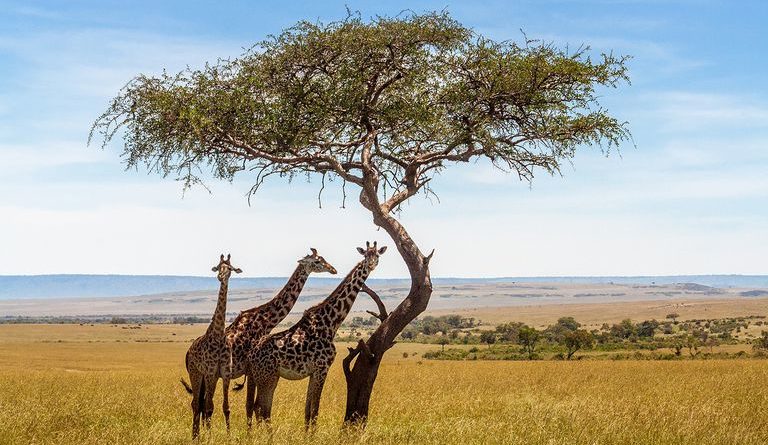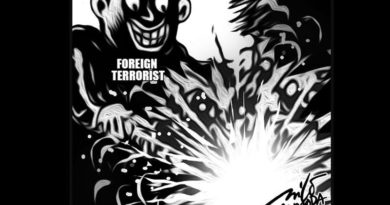HISTORY-CULTURE: Countries in Africa Considered Never Colonized
Pierre-Yves Babelon / Getty Images
.
.
There are two countries in Africa that are considered by some scholars to never have been colonized: Liberia and Ethiopia. The truth, however, is much more complex and open to debate.
What Does Colonization Mean?
The process of colonization is basically the discovery, conquest, and settlement of one political body over another. It is an ancient art, practiced by the Bronze and Iron Age Assyrian, Persian, Greek, and Roman empires; the Viking Empire in Greenland, Iceland, Britain, and France; the Ottoman and Mughal empires; the Islamic empire; Japan in East Asia; Russia’s expansion throughout central Asia until 1917; not to mention the post-colonial empires of the United States, Australia, New Zealand, and Canada.
But the most extensive, most studied, and apparently the most damaging of the colonial actions is what scholars refer to as the Western Colonization, the efforts of the maritime European nations of Portugal, Spain, the Dutch Republic, France, England, and eventually Germany, Italy, and Belgium, to conquer the rest of the world. That began in the late 15th century, and by World War II, two-fifths of the world’s land area and one-third of its population were in colonies; another third of the world’s territory had been colonized but were now independent nations. And, many of those independent nations were made up primarily of the descendants of the colonizers, so the effects of Western colonization were never truly reversed.
Never Colonized?
There are a handful of countries that were not subsumed by the juggernaut of Western colonization, including Turkey, Iran, China, and Japan. In addition, the countries with longer histories or higher levels of development prior to 1500 tend to have been colonized later, or not at all. Characteristics that drove whether or not a country was colonized by the West appear to be how difficult it is to reach them, the relative navigation distance from northwestern Europe, and the lack of a safe overland passage to landlocked countries. In Africa, those countries arguably included Liberia and Ethiopia.
Liberia
:max_bytes(150000):strip_icc()/monrovia-pinned-on-a-map-of-africa-502318972-dd6fa70195394a9cae0fd714f2eb499d.jpg)
The sovereign nation of Liberia is often described as never colonized because it was created so recently, in 1847.
Liberia was founded by Americans in 1821 and remained under their control for just over 17 years before partial independence was achieved through the declaration of a commonwealth on April 4, 1839. True independence was declared eight years later on July 26, 1847.
The American Society for Colonization of Free People of Color of the United States (known simply as the American Colonization Society, ACS) was a society initially run by white Americans who believed there was no place for free blacks in the U.S. They believed the federal government should pay to return free blacks to Africa, and eventually its administration was taken over by free blacks. The ACS created the Cape Mesurado Colony on the Grain Coast on Dec. 15, 1821. This was further expanded into the Colony of Liberia on Aug. 15, 1824.
Some scholars argue, however, that Liberia’s 23-year period of American domination until independence in 1847 qualifies it to be regarded as a colony.
Countries in Africa Considered Never Colonized
:max_bytes(150000):strip_icc()/GettyImages-904136568-5bf2b9e2c9e77c002669ceb9.jpg)
There are two countries in Africa that are considered by some scholars to never have been colonized: Liberia and Ethiopia. The truth, however, is much more complex and open to debate.
Ethiopia
:max_bytes(150000):strip_icc()/GettyImages-157294324-58573f8b5f9b586e029b55cb.jpg)
Ethiopia is considered “never colonized” by some scholars, despite Italy’s occupation from 1936–1941 because that did not result in a lasting colonial administration.
In the 1880s, Italy failed to take Abyssinia (as Ethiopia was then known) as a colony. On Oct. 3, 1935, Mussolini ordered a new invasion and on May 9, 1936, Abyssinia was annexed by Italy. On June 1 of that year, the country was merged with Eritrea and Italian Somalia to form Africa Orientale Italiana (AOI or Italian East Africa).
Emperor Haile Selassie made an impassioned appeal for assistance in removing the Italians and re-establishing independence to the League of Nations on June 30, 1936, gaining support from the U.S. and Russia. But many League of Nations members, including Britain and France, recognized Italian colonization.
It was not until May 5, 1941, when Selassie was restored to the Ethiopian throne, that independence was regained.
Sources and Further Reading
- Bertocchi, Graziella, and Fabio Canova. “Did Colonization Matter for Growth? An Empirical Exploration into the Historical Causes of Africa’s Underdevelopment.” European Economic Review 46.10 (2002): 1851–71.
- Ertan, Arhan, Martin Fiszbein, and Louis Putterman. “Who Was Colonized and When? A Cross-Country Analysis of Determinants.” European Economic Review 83 (2016): 165–84.
- Olsson, Ola. “On the Democratic Legacy of Colonialism.” Journal of Comparative Economics 37.4 (2009): 534–51.
- Selassie, Haile. “Appeal to the League of Nations, 1936.” International Relations: Mount Holyoke College.









